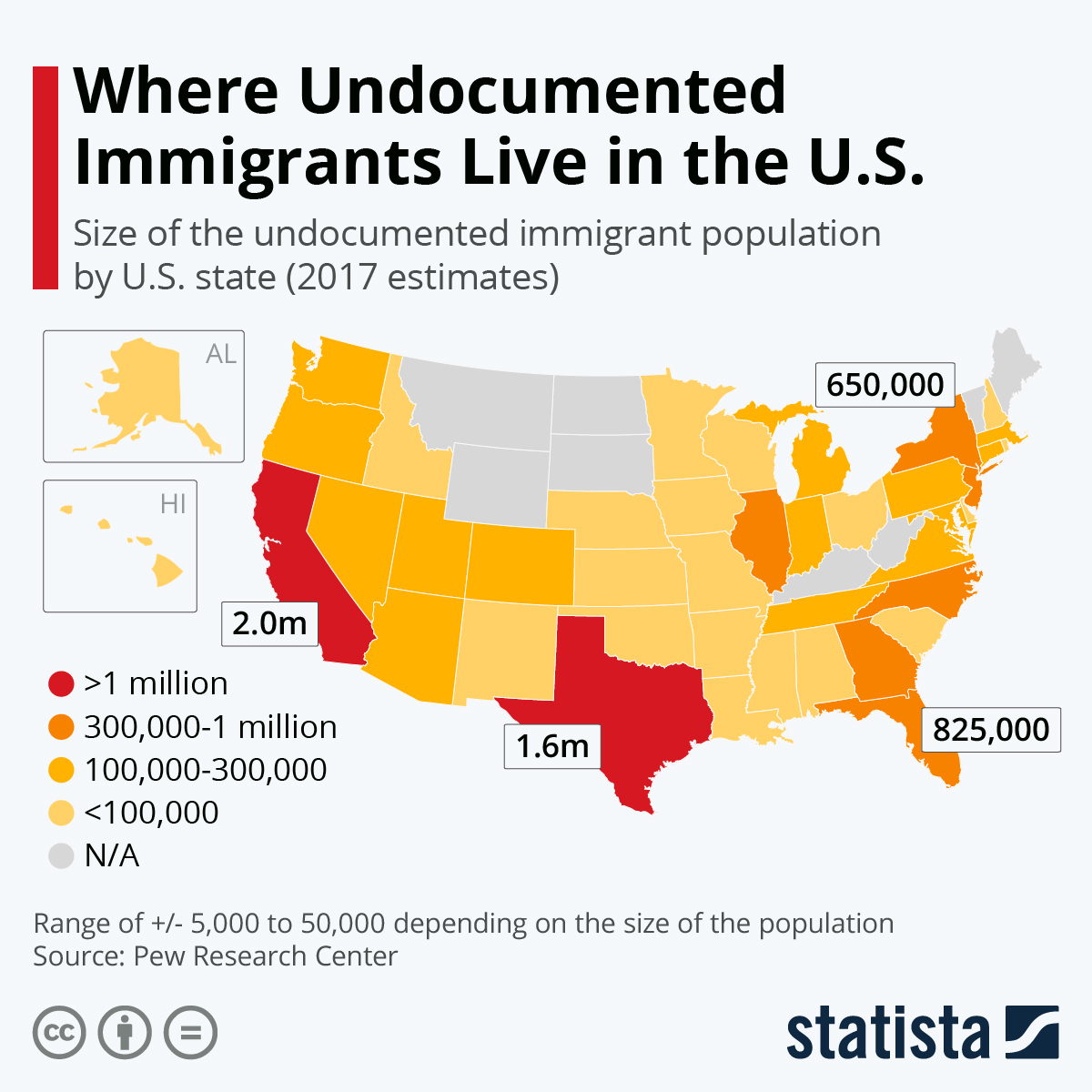
Illegal immigrants in the United States manage to survive economically by communal sharing expenses, and exploiting cracks in social welfare and hiring.
Sharing of expenses:
Shared Housing: One of the most common strategies is shared housing. Multiple families or individuals might live together in a single household to split the cost of rent and utilities. This not only makes housing more affordable but also provides a network of support for childcare, cooking, and other domestic responsibilities.
Car Sharing: Owning or leasing a vehicle can be expensive and risky for undocumented immigrants, particularly in areas where driving without a license is closely monitored. Carpooling or sharing vehicles within a community can reduce transportation costs and decrease the risk of individual exposure to traffic stops and potential legal issues.
Bulk Buying and Shared Meals: Buying food and other necessities in bulk can save money. Communities often organize collective purchasing groups for these items or cook large meals shared among several families, which cuts down on both the cost and time required for individual meal preparation.
Collective Childcare: Instead of paying for expensive daycare services, which might also raise concerns about legal documentation, undocumented immigrants often arrange rotating childcare within their community. This means parents take turns looking after each other’s children, reducing childcare costs and fostering strong bonds within the community.
Pooling Resources for Health Emergencies: Given their limited access to healthcare, undocumented immigrants sometimes pool resources to help cover medical expenses for community members in need. This can include collecting funds to pay for doctor visits, prescriptions, or emergency medical costs.
Group Transportation to Work Sites: Particularly in industries like agriculture or construction, where work sites may be far from residential areas, group transportation solutions can reduce individual costs and simplify logistics.
Informal Lending Circles: Known in some cultures as tandas or cundinas (Latin America), hui (China), or susus (West Africa and the Caribbean), these are informal savings groups where members contribute a set amount of money into a pot, which is then given to one member on a rotational basis. This provides a form of interest-free loans to members and helps them manage large expenses without accessing formal banking.
These shared expense strategies are crucial for economic survival and reflect the strong sense of community and mutual aid prevalent among many undocumented immigrant groups. They help mitigate the risks and stresses associated with their uncertain status by fostering a supportive network that can respond flexibly to members’ needs.
Employment and Social Welfare Programs
Employment in Informal Sectors: Many undocumented immigrants find work in informal sectors or industries that don’t strictly enforce employment eligibility laws, such as agriculture, construction, and domestic work. These jobs often pay in cash and don’t require formal employment documentation.
Self-Employment: Some engage in self-employment or start small businesses where they can work without the need to present legal work documentation. This might include selling goods at flea markets, street vending, or providing services like landscaping or housecleaning.
Subcontracting and Informal Hiring: In some cases, undocumented workers are hired as subcontractors, which can sometimes allow them to work without direct scrutiny of their legal status. This is common in industries like construction or janitorial services.
Community and Family Support: Strong community networks play a crucial role. Communities often provide support among members through shared housing, informal lending circles, and assistance with finding employment.
Use of False or Borrowed Documents: Some undocumented immigrants might use falsified documents or documents borrowed from others to pass employment eligibility checks. This approach carries significant legal risks.
Multiple Jobs or Long Hours: Due to lower wages in informal employment, many undocumented immigrants often work multiple jobs or exceptionally long hours to make ends meet.
Remittances: Those who have family in their home countries might receive financial support through remittances sent from relatives abroad.
Informal Credit Systems: Due to limited access to banking services, many undocumented immigrants rely on informal credit systems. These might include community-based lending circles, known as “tandas” in some Hispanic communities, where groups of people contribute to and withdraw from a shared fund.
Access to Community and Non-Profit Organizations: There are numerous non-profit organizations and community groups that help undocumented immigrants by providing food, legal aid, healthcare, and educational services. These organizations often serve as crucial support networks, helping to navigate life without formal status.
Health Care: Access to healthcare is a significant challenge, but some local clinics and health services offer care without requiring proof of legal residency. These services are vital for preventive care and emergency health needs.
Education for Children: Children of undocumented immigrants have the right to attend public schools in the U.S. up to high school without their legal status being a barrier, as established by the Supreme Court ruling in Plyler v. Doe (1982). Education is often seen as a pathway to better opportunities for the next generation.
Avoiding Detection: Living ‘under the radar’ is a common strategy. This means avoiding any activities that might bring them into direct contact with government authorities, such as driving without a license or any encounters that could lead to legal scrutiny.
Cultural and Social Adaptation: Many undocumented immigrants also work to integrate into their local communities through participation in religious congregations, community groups, and neighborhood activities, which can provide both social cohesion and a measure of safety in numbers.
Navigating Public Spaces Carefully: In areas where local governments and police have agreements with federal immigration authorities (like under the 287(g) program), undocumented immigrants must be especially cautious in how they navigate public spaces and comply with local laws to avoid detention and deportation.
.



